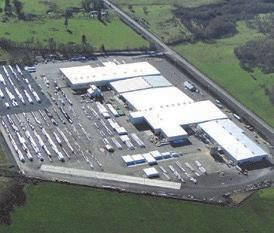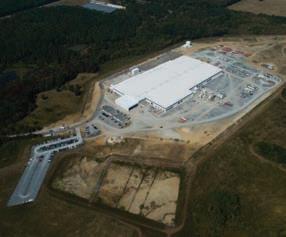
7 minute read
SELLING WITH KAHLE
The Ultimate Business Survival Skill
We are living in incredibly turbulent times. The wellspring of this uncertainty lies in one of the unique characteristics of the times in which we live—rapid change.
The pace of change in our economy, in our culture, in our institutions, and in our industries and businesses is unprecedented in human history. There has never been a time in which the world around us has changed as rapidly as it does today.
Driving this unprecedented pace of change is the expansion in the amount of information we create. Consider this: In 1900, the total amount of knowledge available to mankind was doubling about every 500 years. By 2000, it was doubling about every two years. Today, according to some, the rate of change is doubling every 30 days!
That incredibly rapid pace of new knowledge is driving the forces of change at an unprecedented rate and is continuing to accelerate. The effect of that snowballing rate of change on our businesses and our jobs can be cataclysmic. It’s almost as if a malevolent spirit were stalking our economy, rendering all the wisdom of the past useless, and casting a spell of confusion and uncertainty over the land.
The insightful person will accept that rapid change is now a defining characteristic of our economy and plan to deal with it effectively on an on-going basis. Our ability to change ourselves and our organizations at least as rapidly as the world is changing around us will be single greatest challenge of our professional careers. Instead of thinking we should just persevere until it’s behind us, we should prepare for rapid change to be a way of life. What’s the best way to go forward in the light of this rapid change? What mindsets, disciplines and skills do we need to survive and prosper in turbulent times?
The solution
I believe there is one core skill which will define the most successful individuals and organizations. It’s the ability and propensity to engage in purposeful, self-directed learning. The only sustainable effective response to a rapidly changing world is cultivating the ability to positively transform ourselves and our organizations. That’s the function of purposeful, self-directed learning.
Here are six disciplines for the purposeful learner: 1. Set aside dedicated time for learning
Understand that your future is dependent on your ability to learn and grow at least as rapidly as the world is changing around you. That isn’t going to happen haphazardly. There was a slower, less stressful time when you could count on that. Today, you must learn better than ever.
Nothing worthwhile is learned without intentionality, purpose and dedication. If, for example, you decided to be a golf professional, you’d sign up for lessons with the best coach you could afford, and spend hours everyday practicing and studying the game.
So too with any competency. If you’re are going to improve yourself and perhaps your organization, you must dedicate time to the task. I recommend a one-hour block of time every week, dedicated specifically and exclusively to learning, as a starting point. 2. Expose yourself to differing ideas
One of the surest ways to plateau is to limit your input to only those ideas you agree with, and the people who agree with you. Stretch outside of the box and encounter those ideas and people who have a different point of view.
It is amazing what a bit of exposure to the other guy’s point of view will do to broaden your horizons and impact your attitude. If your attitudes and ideas are solid and well-supported they will withstand the assault of opposing ideas. And your exposure to differing ideas will provide you with wisdom, empathy and a self-confidence that will serve you well in the long run. 3. Ask questions
A well-phrased question is one of mankind’s greatest thinking tools. A good question is a salesperson’s most powerful sales tool. When we ask a question, the other person thinks of the answers. That means that we can influence, shape and stimulate thought processes in the other person.
And that is just as true for ourselves. When we ask ourselves a good question, it stimulates our thinking.
If you want to find better ways of doing things, if you want to improve your competency and skills, continually ask yourself questions. Write them down, seek the answers, and write those down as well.
4. Take a risk—a project that’s outside your comfort zone
One sure way to learn and grow is to put yourself in a situation where you must stretch yourself and gain new competencies and skills in order to succeed or just survive. 5. Refl ect, consolidate and commit
“What doesn’t kill you makes you stronger.” We’ve all heard that bit of sound-bite wisdom. It is only partially true. For diffi cult circumstances to make us stronger, we must learn from them. Not everyone does.
My wife is a crisis counselor. You would think that a crisis would be a one-off event. Once resolved, the person in crisis would rise up stronger and more capable than before. Alas, not true. The same people fi nd themselves in one crisis after another. They resolve a crisis but never learn—they never change their behavior and continue to do the same things that brought on the crisis in the fi rst place.
For adversity to make us stronger, we must be active participants in the learning process. That means pausing and refl ecting on the experience—asking ourselves, “What did we do to contribute to this?” And then writing down the answers. Once we have clearly identifi ed our behavior, we then commit to changing that behavior so that we can learn from the experience and become stronger. 6. Include your employees, family, and those you infl uence
If you fi nd yourself in a position of infl uence, there are those around you who look to you for leadership. One of the greatest leadership strategies in today’s fast-changing environment is to initiate purposeful learning among them.
To instill this learning in your people: (1) Wipe the slate clean. Imagine that you have written the history of your company or your career on a blackboard. You have every decision, every strategy, every success, and every failure noted in detail. The sum of this experience provides the rationale for why and how you do everything that you now do.
Now, take a wet towel. Wipe the board clean. Erase the past. As you do so, you eliminate the unspoken acceptance of the way things are and replace it with the new understanding that things may not be the way they should be. Just because something is, doesn’t mean it should be. The reason you started doing something may no longer exist.
This exercise provides a mental image for a change in thinking that needs to take place if you’re going to become a learning organization. You must begin to think about things that you do, not on the basis of the past, but rather on the basis of the present and the future. It’s a way of eliminating one of the biggest barriers to learning and changing. (2) Give purposeful learning a strategic emphasis. Build in the need to become a learning organization in the most fundamental building blocks of your business. Write it into your mission statement. Display it in your personnel manual. Talk about it at employee meetings. And, begin to model learning behavior yourself. (3) Make purposeful, self-directed learning a part of everyone’s job description. Begin to create learning expectations for yourself and all your employees. Talk about their need to learn and grow. Include it as an item on every job description. Then encourage, develop and support learning opportunities throughout your organization.
– Dave Kahle is a high-content consultant, instructor and author of 12 books, including How to Sell Anything to Anyone Anytime. Reach him at dave@davekahle.com.
JOIN THE SUCCESS

IN 2020
Roseburg® Engineered Wood Products A world leading producer of Engineered Wood Products FEATURES AND GRADES •Full line of RFPI®-Joists from 9-1/2” to 24” depths •High grade RigidLam® LVL Beams,
Headers, Studs and Rim Board •Residential, Commercial and Industrial •Lengths from 12’ to 66’ Mill Direct •Accepted by all major Building Codes and Certifying Agencies BENEFITS •Roseburg® operates two of the world’s largest EWP manufacturing facilities located in Oregon and South Carolina •Commitment to product quality and performance •Experienced Field Sales and
Engineering support


NEW EWP facility now open in Riverside!











